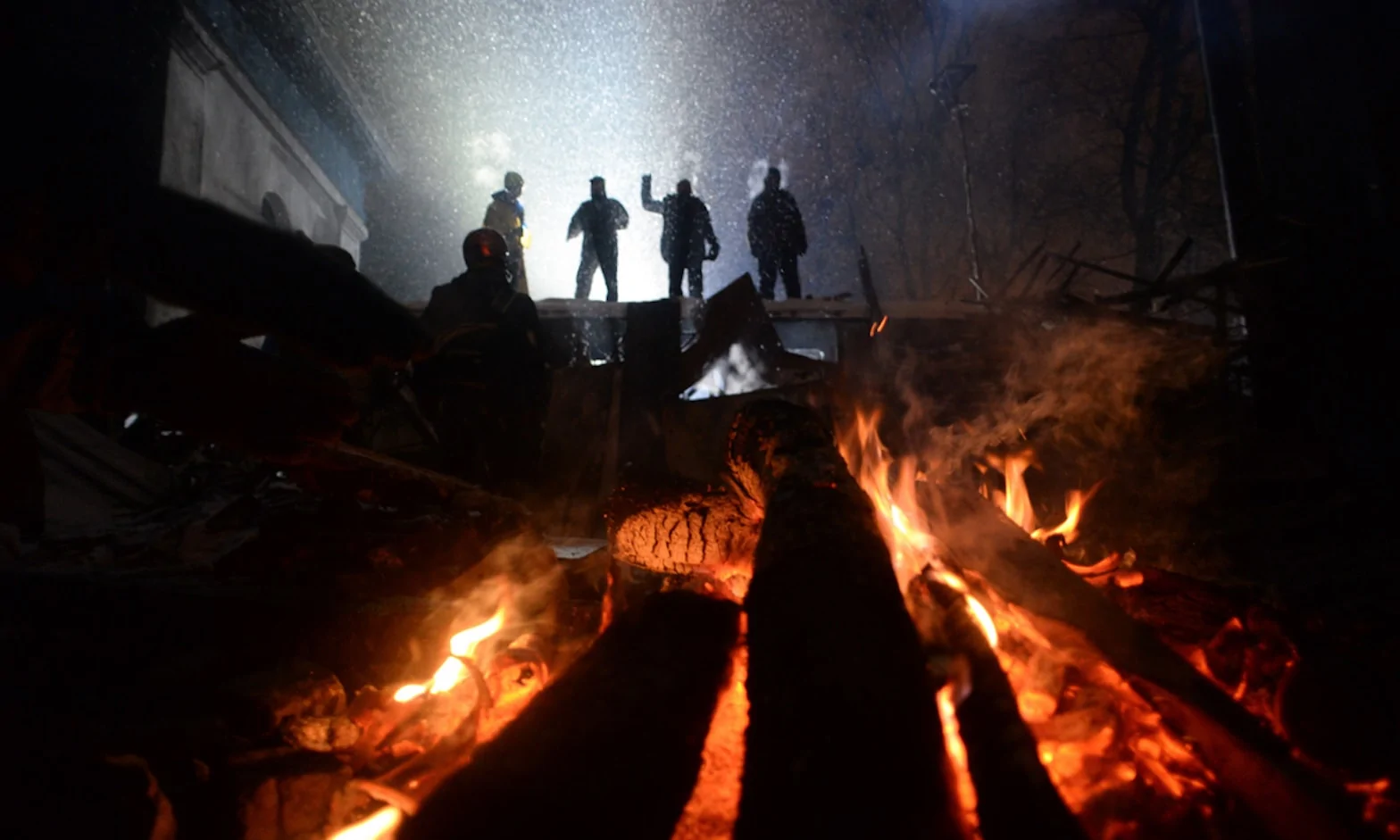Horizon Scanning for National and International Security (unedited issue) Click on the image to access the Weekly
Author Archives: Dr Helene Lavoix (MSc PhD Lond)
The Red (Team) Analysis Weekly 153 – The Paradox of Change?
Editorial – The paradox of change? Reading through the multiple crowd-sourced articles of the Weekly, what stands out is a perception of an acceleration of change. In itself, each flashpoint or problem is not new, and has been either underlined or monitored for months and even for years for some of them. Yet, when we look at all of them …
Continue reading “The Red (Team) Analysis Weekly 153 – The Paradox of Change?”
Conflict in Ukraine – Setting the Stage
The crisis in Ukraine started on 21 November 2013 with the Euromaidan protests in Kiev. Six months later, it is threatening to become a full-blown civil war with severe global impacts, unless the situation is stabilised. As for any conflict it is important to assess possible futures and impacts at all levels. Image: Mstyslav Chernov/Unframe – CC BY-SA 3.0This article starts a series on the conflict in Ukraine, which aims at providing the most possible useful analysis of the situation. As we did with Syria, the series will focus on the states of play for the actors and the situation on the ground, a necessary foundation for any proper strategic foresight and warning regarding the conflict.After outlining our analytical framework to overcome the difficulties related to propaganda, we shall define and …
Continue reading “Conflict in Ukraine – Setting the Stage”
The Red (Team) Analysis Weekly 152 – Forgetting Food Security?
Editorial – Forgetting food security? While the tense stand-off between the U.S., the E.U. and European member states on the one hand and Russia on the other does not abate and spreads to space, while most focus on the fossil fuel component of the Ukrainian global crisis, one crucial element of this energy that is vital for human societies, food, tends to be forgotten (for food as energy, see e.g. Thomas Homer Dixon, The Upside of Down, 2008). It is, however, usefully re-called to out attention by Chris Martenson’s article “Rising Resource Costs Escalate Odds of Global Unrest” (via Peak Prosperity on Zerohedge). True enough, if you head to the FAO monitoring of the global food situation, so far things are looking all right. Furthermore, according …
Continue reading “The Red (Team) Analysis Weekly 152 – Forgetting Food Security?”
The Red (Team) Analysis Weekly 151, 8 May 2014
Horizon Scanning for National and International Security (unedited issue) Click on the image to access the Weekly
The Red (Team) Analysis Weekly 150, 1 May 2014
Horizon Scanning for National and International Security (unedited issue) Click on the image to access the Weekly
The Red Team Analysis Weekly 149 – War and Weak Signals
Editorial – War and Weak Signals – While progressing through the raw mass of information of The Weekly and editing it, initially, it seemed obvious the editorial should focus on Obama’s visit to Asia, the TPP and especially on the U.S. President’s assertion in the Yomiuri Shimbun regarding the disputed Diaoyu/Senkaku Islands: “The policy of the United States is clear — the Senkaku Islands are administered by Japan and therefore fall within the scope of Article 5 of the U.S.-Japan Treaty of Mutual Cooperation and Security. And we oppose any unilateral attempts to undermine Japan’s administration of these islands”. The accommodating Chinese News reactions to this American statement, as a willingness to keep the U.S. outside the dispute, are also to be underlined …
Continue reading “The Red Team Analysis Weekly 149 – War and Weak Signals”
Actors and Factors In Future Threats Analysis (3) – The Crisis in Ukraine
(photo by Andrew Butko, CC BY-SA 3.0, via Wikimedia Commons)This article focuses on a third analytical challenge at the core of the foresight and warning process, the fact that actors and “factors”, or rather variables, are often mixed together. Using the example of the unfolding crisis in Ukraine, the first article of the series explained how to map a strategic foresight and warning question, notably how to move from factors to variables and the second underlined the importance to define and name the actors relevant to the question as objectively as possible and suggested ways to do it.The “black box” actorAs we recall from the last post, during the first steps of a mapping for the future evolution of the crisis in Ukraine, both factors …
Continue reading “Actors and Factors In Future Threats Analysis (3) – The Crisis in Ukraine”
The Red Team Analysis Weekly 148 – A strange bipolar world?
Editorial – A strange bipolar world? – As previously suggested (see the Weekly 142, 143 & 145), the crisis in Ukraine seems to be accelerating some of the profound transformations that are globally at work, as consequences spread to Asia, and as doubts are being cast about the U.S. real commitment to, interest or capabilities in the region. Yet, and interestingly, the rhetoric against Russia from “the West” is strong and quite unanimously spread across (Western) media. As other noteworthy changes happen according to their own specific domestic and regional dynamics, such as the possibility to see Israel forging new ties with Arab states, we may wonder if the return to a Cold War type of discourse is not actually participating in the acceleration of change. In other words, …
Continue reading “The Red Team Analysis Weekly 148 – A strange bipolar world?”
The Red (Team) Analysis Weekly 147, 10 April 2014
Horizon Scanning for National and International Security Click on the image to access the Weekly







